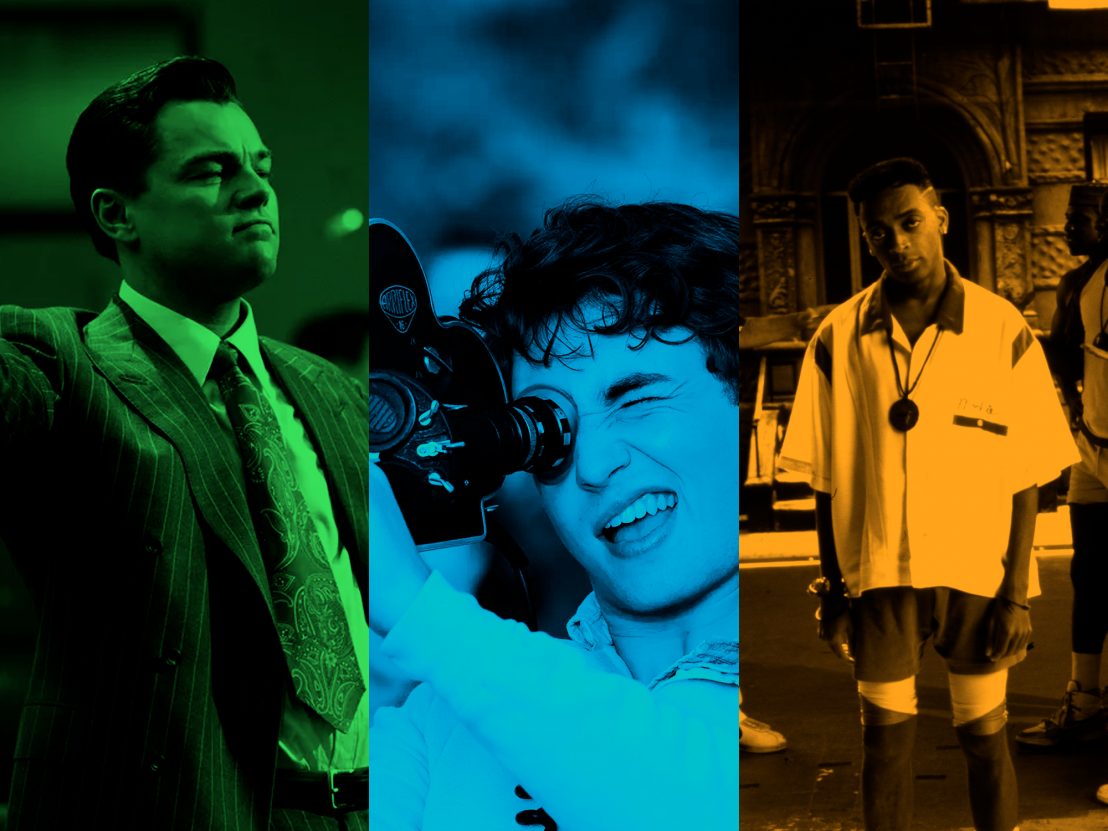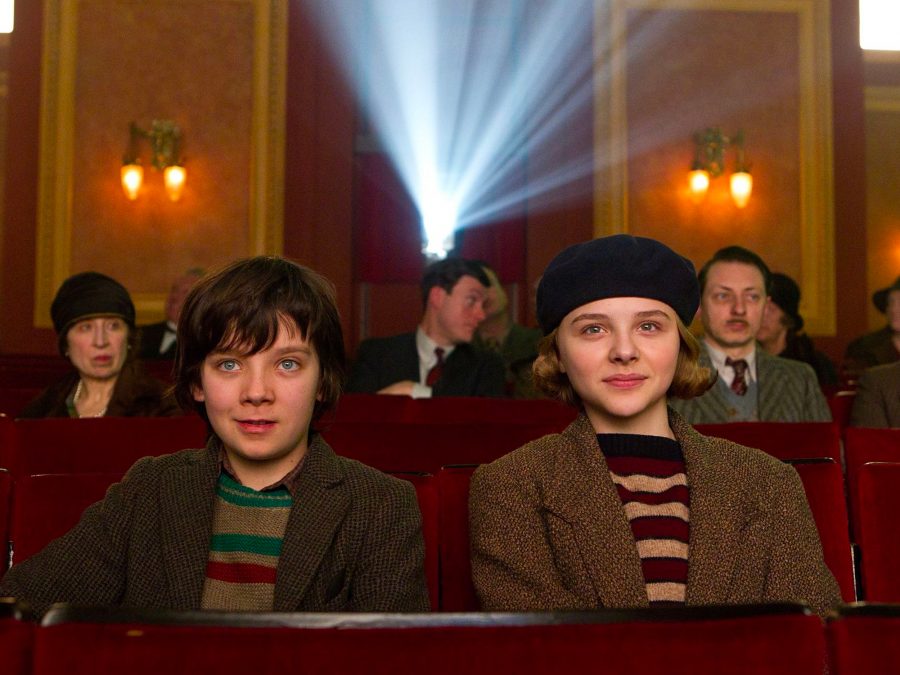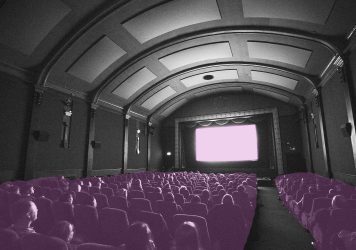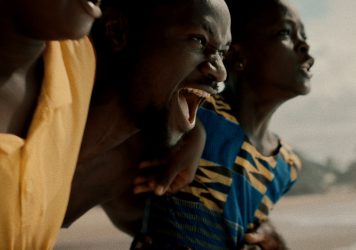Recent studies have shown how people with dyslexia have enhanced abilities in originality, creativity, and reasoning. Could it be that movies can provide the perfect place to focus on the strengths of this different way of thinking?

Defined by the British Dyslexia Association, “dyslexia is a learning difficulty that primarily affects the skills involved in accurate and fluent word reading and spelling.” Dyslexia exists around the globe, across all cultures and languages, and even today carries a sustained stigma, despite the fact that in the UK at least one in ten people are dyslexic.
However, if we get down to basics, dyslexia is simply a different way of processing information. So it shouldn’t be too hard to imagine that there are also potential advantages with this different way of thinking – although that’s easy for me to say; I’m dyslexic.
Of the dyslexic experiences I had at school, the most archetypal was the humiliation of struggling to read aloud in class – an experience shared by many people with dyslexia, including movie legend Steven Spielberg. In an interview with Friends of Quinn (an online community that offers resources and support for young adults with learning differences), he shared “It all stemmed from the fact that I was embarrassed to stand up in front of the class and read”.
An all-too-common starting point, he continues, “Dyslexia was the first thing that led me to realise that I was different although I didn’t have a name for it, I just knew that I dreaded going to school, because if I was called on… that day would be another long day in a long series of the worst days of my life”. But thankfully, “making movies was my great escape”.
Considering movies as a means of escapism is nothing new, but in the context of the dyslexic experience, finding comfort in a medium that celebrates storytelling and imagination in a non-literary form can be extremely liberating.
Within the past few years, there has been a shift in the research around the study of people with dyslexia. More and more research corroborates the key new idea that dyslexic people are prone to advantages due to the unique way their brain works. The overall message of the 2022 study led by Dr Helen Taylor of the University of Cambridge, is that dyslexia should be redefined as a strength rather than a disability.
The research by Dr Helen Taylor explains that the key areas of enhanced abilities for people with dyslexia are discovery, invention, and creativity. It explores the enhanced cognitive advantages for people with dyslexia, due to the multisensory ways in which information is processed by a dyslexic brain. The dyslexic brain has a heightened ability to connect and carry out unusual combinations of ideas which can inspire original thinking. This skill of innovative thought goes hand-in-hand with good storytelling.

It should be no surprise then that people with dyslexia have excelled in the art of storytelling; Octavia E. Butler and Agatha Christie were both very successful authors and both dyslexic. However, when we mix in that for people with dyslexia, difficulties when it comes to reading, writing, and spelling are renowned, it’s no wonder that so many talented dyslexic storytellers, turn instead to film as a medium of expression. It’s not just Steven Spielberg who has spoken publicly about his dyslexia diagnosis – Martin Scorsese, Steve McQueen and Spike Lee have all spoken about the ways in which being dyslexic has contributed to their filmmaking abilities.
More than storytellers, more than directors, Spielberg, Scorsese, McQueen and Lee are all auteurs in the truest sense of the term. Speaking in a 2019 interview in The Times, Lee said “Being a film director, you lead a lot of people, and I’ve always had that in me. Even when I was a little kid, I was the one that would organise all the games.” You know when you’re watching a Spike Lee joint, and it’s clear the high level of control he has over his films to deliver his distinctive style. Leadership, a key skill for an auteur to actualise their filmmaking vision, aligns again as a skill highlighted as an exceptional area for dyslexic thinkers.
Speaking with two aspiring filmmakers in 2018, McQueen explains, “For me the most important thing when filmmaking is sound. Image and sound of course were much more heightened because my oral reading wasn’t as good”. McQueen exemplifies the multisensory way in which dyslexic learning occurs, using multiple senses and therefore engaging multiple areas of the brain to achieve new and unique outcomes.
Thinking back to McQueen’s Small Axe anthology, in particular Lover’s Rock, it’s clear to see how these skills were used to create more intensely immersive, emotive imagery through a foregrounded soundtrack. Set amongst a 1980’s blues party, the music and sound of partygoers provide us with a diegetic soundtrack, paired with incredible imagery of sweat dripping down walls and close-up tracking camerawork that creates a uniquely intense viewing experience.
For someone with dyslexia, watching a film can be an all-around more engaging experience. According to research by Made By Dyslexia, 84% of dyslexics are above average at reasoning (recognising and understanding patterns, calculating, and evaluating possibilities and making decisions). When I’m watching a film, it feels like one big reasoning exercise. Aiming to understand the characters, their actions and their motivations for them; the progress of the plot points and how on earth we are going to get to the resolution from here.
Of course, this kind of movie-watching experience can be had by neurodivergent and neurotypical people alike, but when it comes to connecting and intersecting ideas in the dyslexic brain, there seem to be more opportunities for original thought and innovation –although when watching any whodunit film my reasoning often leads to accusing anyone with even a second of screen time as being the assailant. This reasoning strength has often been linked to the idea of exploring the unknown, a heightened ability to simulate an unwitnessed past and to make predictions about the future. For a dyslexic viewer, this can create a more immersive experience.
Considering the ways in which we might think differently, we might begin to see the future Dr Helen Taylor suggested, in which dyslexia is redefined as a strength rather than a disability. We should recognise the example that has been set by great dyslexic minds and encourage people with dyslexia to explore their unique strengths in new and creative ways. After all, the future of cinema can only be strengthened by inclusivity, and encouraging more creative, original thinkers.
Published 11 Jul 2023

A joint initiative from Matchbox Cine, Film Hub Wales, Inclusive Cinema, Film Hub Scotland and the Independent Cinema Office aims to widen participation by sharing inclusive resources.

By Elena Lazic
This year’s Clermont ISFF once again welcomed an eclectic mix of short-form filmmaking new and old.

Nicolas Philibert’s 1992 documentary is a sensitive and affecting portrayal of the deaf experience.